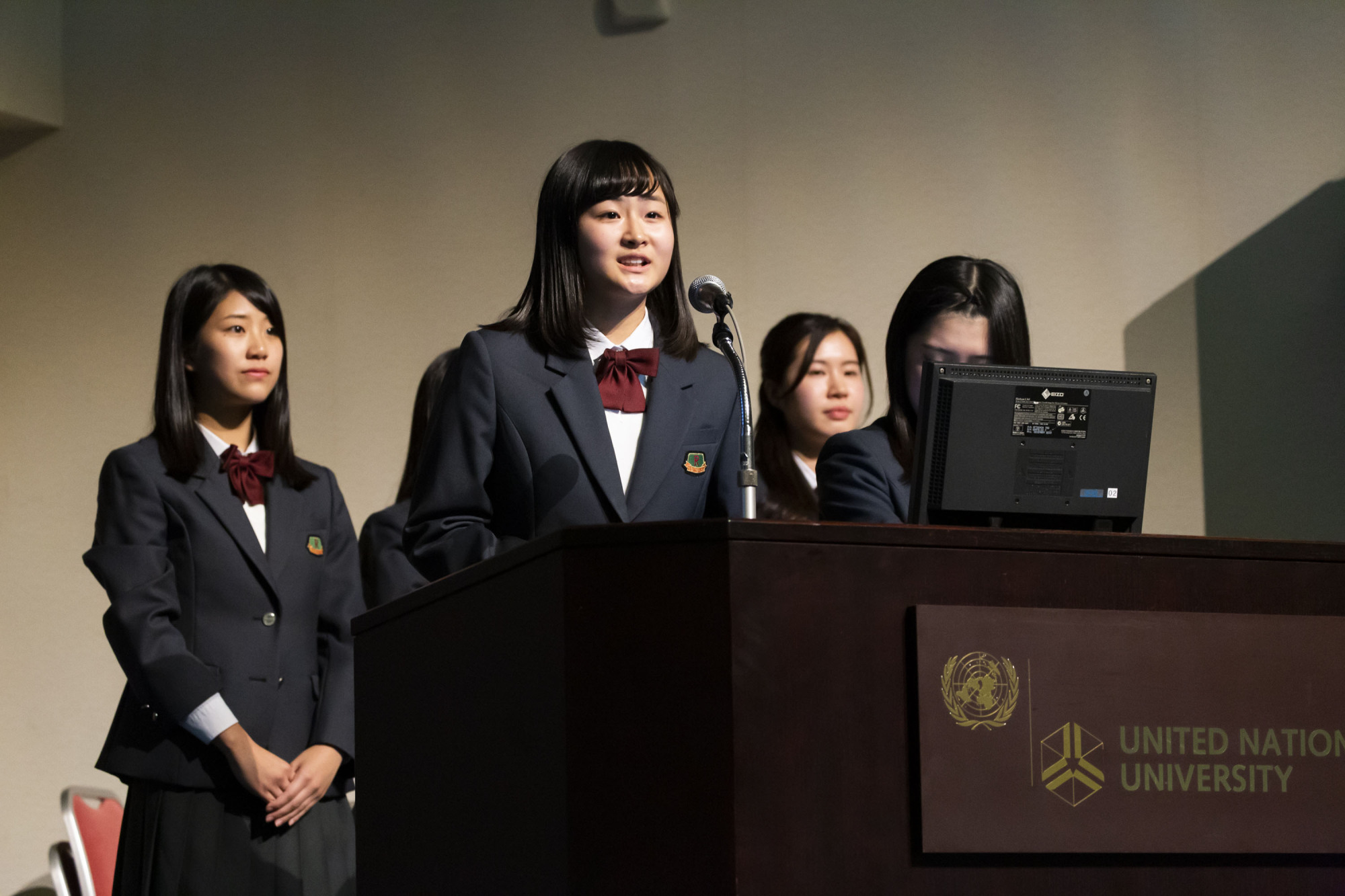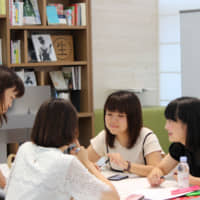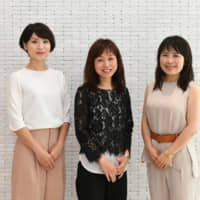Empowering women has been a crucial philosophy underlying the business and management of Shiseido Co. since its foundation in 1872. Through successive visionary leaders, the company has implemented a number of initiatives to bring out the potential of female workers and improved the working environment for women.
For one, the prestigious Japanese cosmetics maker introduced a maternity and child care leave program in 1990, prior to the enforcement of relevant laws. With over 2,000 employees on average taking maternity and child care leave in addition to working shortened hours each year, Shiseido sees almost all of its female employees return to work afterward.
Now capitalizing on its human resources and relevant experiences, the Tokyo-based company has driven various efforts to realize a sustainable society and world, particularly in gender equality in relation to Goal 5 of the U.N. Sustainable Development Goals.
Further committing to the goal, Shiseido became the first Japanese firm to sign an agreement with U.N. Women in April 2017.
"Through partnership with U.N. Women, we hope to take action to promote gender equality in Japan, which lags behind in this direction," explained Eriko Ieda, group manager of the Diversity and Inclusion Department. Out of 149 countries, Japan was ranked 110th in the 2018 Global Gender Gap Index by the World Economic Forum.
Joint efforts in collaboration with the U.N. body resulted in the "Awareness Raising Workshops on Gender Equality," an educational initiative targeting younger generations, specifically high school students. The program was launched in 2017 on a trial basis.
"We were aware that our business has relatively weak connections with young people. In considering how to reach them, we came up with this idea to collaborate with this generation to tackle social issues with a focus on gender equality," said Ieda, who leads the Shiseido team organizing the initiative.
In crafting specifics of the program, Ieda said she was surprised to find through interviews that "conventional gender-based stereotypes" still persist among young people.
"We concluded that it's vital to facilitate a change in such stereotypical ideas in order to prompt concrete actions toward gender equality," Ieda noted.
Following the trial, Shiseido and U.N. Women expanded the program to full scale in 2018.
The program featured sessions, including "input," consisting of lectures and discussions to provide basic knowledge; "workshops" at each participating school; "output" presentation opportunities for students to share what they found; and "outcome," in which behavioral change is expected and encouraged to create social impact. The 2018 program saw the participation of students spanning 25 schools.
Yui Takayama of the Inclusion Group at the Diversity and Inclusion Department, who is also involved in this program, noted that the organizers placed importance on input in order to give opportunities for students to seriously think about their lives and future.
"We wanted them to regard gender issues as their own. Using this opportunity, we hoped that they would think about how they want to live their lives in the society they would create," Takayama said.
Students apparently learned something valuable through the program. According to Takayama, an Aichi Prefecture high school student whose mother is a full-time homemaker, said her sense of value completely changed upon learning the merits of working, including financial benefits.
She and her schoolmates went on to organize a gender education session at their school, using a sort of role-playing game created by them. Ieda said the game was to promote women's social participation, designed to examine the income difference between households where only a husband works and those in which both spouses do.
"What they found and were most impressed with through the game was the difference in lifetime earnings of ¥200 million between those two households," Ieda noted.
Ieda and Takayama both said the company hopes the initiative will help students take action and proactively share what they learned.
"Shiseido seeks to take concrete actions leading to social change," Ieda stressed. "It's the younger generation who will take a leading role in the future society. Making a contribution to help realize a society they hope to create, we'd like to establish a system to bring about social change."
Additionally, Shiseido, through its Prestige brand, is committed to a global charity program that honors influential women working to empower women and girls through education and provides grants to the charity of their choice.
The company's premier luxury brand Cle de Peau Beaute launched the Power of Radiance Program in March in Tokyo, choosing UNICEF goodwill ambassador Muzoon Almellehan as its inaugural annual award recipient.
This program was in line with the brand concept, "Unlock the power of your radiance," explained Kana Minamidate, manager of the Communication Planning Group of the Cle de Peau Beaute Brand Unit.
"We'd like to help unlock the radiance of women, which could lead to a substantial social change and create an influential movement," Minamidate said.
History of support for women at Shiseido Co.
Founder Arinobu Fukuhara built the foundations of Shiseido Co. from his first business in Tokyo’s Ginza district by incorporating the virtues of his wife and business partner Toku.
Nine women were selected for the first Miss Shiseido positions that preceded the company’s current beauty consultants. They advanced beauty expertise and developed as professionals who could respond to consumers’ beauty inquiries at retail shops.
Hisako Nagashima was dispatched to Hong Kong as the first member of the overseas beauty consultant team. Afterward, she was involved in the launch of Shiseido’s overseas businesses in 34 countries.
・Establishment of child care leave system (1990): Available for a total of five years until a child reaches the age of three.
・Establishment of child care time system (1991): Work hours can be adjusted up to two hours per day until a child reaches the third grade of elementary school.
An in-house nursery was established for employees in Tokyo’s Shiodome district. Some slots are open to neighboring firms.
The Kangaroo Staff System was introduced to support beauty consultants working shorter hours due to taking time off for child care.
Shiseido was ranked first for three consecutive years starting 2014 among the “Best 100 Companies Where Women Play an Active Role,” sponsored by Nikkei Woman and the Nikkei Womenomics Project.
The company established Kodomology Co. to operate nursery schools on company premises, starting the child care business.


























With your current subscription plan you can comment on stories. However, before writing your first comment, please create a display name in the Profile section of your subscriber account page.